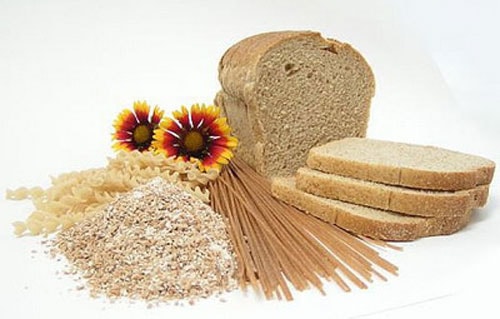Do you get enough micronutrients every day?
How much calcium and vitamins do we need each day? Is your body getting enough vitamins and minerals from your diet?
If you are concerned about this, please refer to the information below.
 |
Photo: flickr.com
• Vitamin A
Daily dose: 700 mg (2,333 IU)
Why you need it: Vitamin A is good for vision, helps bone growth, regenerates and divides cells in the body and strengthens the immune system.
Foods that provide vitamin A: carrots, yellow fruits, cereals, green vegetables.
Do not take more than 3,000 mg (10,000 IU) per day because too much vitamin A can be toxic to the body. This is manifested by symptoms such as blurred vision, headaches, vomiting, damage to the liver, bones, and central nervous system.
• Vitamin E
Daily dose: 15 mg (33 IU)
Why you need it: Vitamin E is a powerful antioxidant that helps protect cells in the body from damage, fight chronic diseases, boost the immune system, repair damaged DNA, and boost metabolism.
Foods that provide vitamin E: almonds, egg whites, spinach, olive oil
Do not take more than 1,000 mg (2,222 IU) because large amounts of vitamin E can thin the blood, increase the risk of stroke in people with high blood pressure, and cause lung cancer in smokers.
• Vitamin C
Daily dose: 75 mg
Why you need it: Vitamin C is a powerful antioxidant, helps synthesize collagen in bones, cartilage, muscles and blood vessels, and aids in the absorption of iron.
Foods that provide vitamin C: oranges, lemons, grapefruit, papaya, broccoli.
Do not take more than 2,000 mg per day because high doses of vitamin C can lead to digestive problems.
• Vitamin B9 (folic acid)
Daily dose: 400 mg
Why you need it: If you're pregnant or breastfeeding, vitamin B9 helps prevent neural tube defects in your baby. Canadian health experts recommend that pregnant women take between 400 and 1,000 mg per day.
Foods that provide vitamin B9: dark green leafy vegetables, cereals, bread, red beans.
Do not take more than 1,000 mg per day. Vitamin B9 deficiency may also be linked to Alzheimer's disease.
 |
• Niacin (vitamin B3)
Daily dose: 14 mg
Why you need it: Niacin is involved in the body's metabolism of carbohydrates, fats and proteins, and helps the body develop normally.
Foods that provide niacin: meat, fish, poultry, nuts and eggs.
Do not take more than 35 mg per day as it may cause liver damage and skin flushing.
• Vitamin D
Daily dose: 5 mg (200 IU)
Why you need it: Vitamin D helps keep your bones and teeth strong by maintaining healthy levels of calcium and phosphorus in your bones. It also helps protect against breast, prostate and colon cancer, and reduces the risk of osteoporosis when combined with a healthy diet and regular exercise.
Foods that provide vitamin D: milk, eggs, fish, fish oil, morning sunlight.
Do not exceed 50 mg (2,000 IU) per day as it may lead to nausea, constipation, weight loss, and other symptoms.
• Calcium
Daily dose needed for the body: 1,000 mg
Why you need it: This mineral helps maintain healthy bones and teeth.
Foods that provide calcium: milk, dairy products, vegetables, salmon, sardines, lentils and beans.
Do not exceed 2,500 mg per day as it can lead to kidney problems and may also affect the absorption of other essential minerals.
 |
• Iron
Daily dose: 18 mg
Why you need it: Iron is a component of proteins and enzymes that help transport oxygen in the blood, maintaining good health.
Foods that provide iron: red meat, poultry, if you are vegetarian you can use cereals, dried beans, dark green leafy vegetables or use supplements.
Do not take more than 45 mg per day because iron can interact with other medications and foods, causing serious health problems such as ulcers. Pregnant or menstruating women, vegetarians and those with anemia should supplement with more iron.
• Zinc
Daily dose: 8 mg
Why you need it: Zinc is a mineral that is important for growth, development, reproduction, and maintaining a healthy immune and nervous system.
Foods that provide zinc: beef, chicken, fresh oysters, cereals, nuts, dairy products, potatoes.
Do not take more than 40 mg per day because it can affect the absorption of copper, iron, and some other substances in the body. Excess zinc can weaken the immune system and reduce good cholesterol.
• Magnesium
Daily dose: 320 mg
Why you need it: Magnesium is essential for metabolism, maintaining nerve function and muscle activity, supporting the cardiovascular system, boosting the immune system and keeping bones strong.
Foods that provide magnesium: beans, nuts, cereals, oats and milk.
Do not exceed 350 mg per day as it may cause diarrhea, nausea and abdominal pain.
• Beta-carotene
Daily dose: unlimited
Why you need it: Beta-carotene helps maintain good vision, boosts the immune system and is also an antioxidant.
Foods that provide Beta-carotene: fruits, green vegetables.
• Vitamin B6
Daily dose needed by the body: 1.3 mg
Why you need it: Vitamin B6 is involved in the synthesis of chemicals in the brain and red blood cells, boosts metabolism and maintains stable blood sugar levels.
Foods that provide vitamin B6: cereals, beans, meat, poultry, fish, fruits and vegetables.
Do not exceed 100 mg per day as it may cause damage to the nervous system.
• Vitamin B12
Daily dose needed by the body: 2.4 mg
Why you need it: Vitamin B12 helps maintain a healthy nervous system and protects against heart disease, depression, and Alzheimer's disease.
Foods that provide vitamin B12: meat, cereals, fish, cheese and milk.
No limit on dosage.
• Thiamine
Daily dose needed by the body: 1.1 mg
Why you need it: Increases muscle strength, good for the nervous system, helps the body convert food into energy.
Foods that provide thiamine: cereals, rice, bread.
There are no adverse effects on the body when thiamine is consumed in large amounts.
• Riboflavin
Daily dose needed by the body: 1.1 mg
Why you need it: Riboflavin is essential for healthy skin and stimulates the production of red blood cells.
Foods that provide riboflavin: milk, eggs, cereals, liver, green vegetables.
There are no adverse effects on the body when riboflavin is consumed in large amounts.
• Pantothenic acid
Daily dose: 5 mg
Why you need it: Pantothenic acid stimulates the metabolism of carbohydrates, fats and proteins.
Foods that provide pantothenic acid: meat, potatoes, oats, tomatoes and vegetables.
Avoid consuming too much pantothenic acid as it can cause diarrhea.
• Selen
Daily dose: 55 mg
Why you need it: Selenium is a powerful aid in the functioning of the thyroid gland and immune system. Selenium is also involved in the synthesis of enzymes that fight oxidation.
Foods that provide selenium: sandwiches, tuna, nuts, liver, animal kidneys, cereals, breads and poultry.
Do not exceed 400 mcg as it may increase the risk of developing type 2 diabetes, selenium poisoning is manifested by symptoms such as brittle hair and nails.
• Iodine
Daily dose: 150 mg
Why you need it: Iodine is essential for normal thyroid function.
Foods that provide iodine: iodized salt, seafood.
Do not exceed 1,100 mg per day.
• Phosphorus
Daily dose: 700 mg
Why you need it: Phosphorus aids in the formation of bones and teeth and the growth of cells in the body.
Foods that provide phosphorus: meat and milk.
Do not exceed 4,000 mg per day because it can adversely affect some organs in the body, especially the kidneys.
• Copper
Daily dose: 900 mcg
Why you need it: Copper plays an important role in the formation of connective tissue and enhances iron metabolism.
Foods that provide copper: seafood, nuts, cereals, bran, wheat.
Do not exceed 10,000 mcg as it may cause stomach upset and nausea.
Biotin
Daily dose: 30 mcg
Why you need it: Biotin helps the body metabolize starch, fat, protein and prevents chronic diseases.
Foods that provide biotin: liver, egg yolks and mushrooms.
No limit on consumption.
• Lutein
Daily dose: Undetermined.
Why you need it: Improves eyesight, protects eyes against macular degeneration and cataracts in old age.
Foods that provide lutein: kale, spinach, fruits, eggs.
No limit on consumption.
According to Women Online - NT






